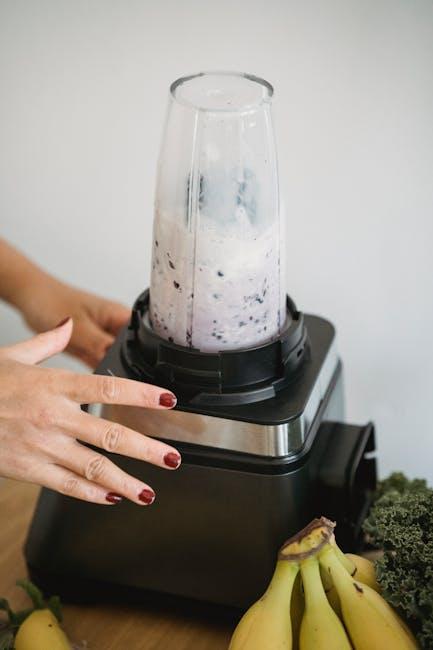In the intricate dance of wellness, finding balance often feels like a delicate art. As we navigate the world of nutrition, the concept of cheat days stands as both a tempting reprieve and a potential challenge. How do these indulgent pauses impact one of our body’s most essential players—our gut health? This article delves into the subtle interplay between treating yourself and nurturing your digestive system, exploring how mindful moderation can transform cheat days from a source of guilt into a harmonious part of a healthy lifestyle.
Table of Contents
- Understanding Gut Health and Its Role in Overall Wellness
- The Science Behind Cheat Days and Their Impact on Digestion
- Striking the Right Balance Between Indulgence and Nutrition
- Practical Tips for Incorporating Cheat Days Without Gut Disruption
- Mindful Eating Habits to Support Long-Term Gut Health
- Q&A
- In Conclusion

Understanding Gut Health and Its Role in Overall Wellness
Our gut is often referred to as the “second brain,” reflecting its profound influence beyond digestion. This intricate ecosystem of trillions of microbes plays a crucial role in everything from nutrient absorption to immune system regulation. Maintaining a balanced gut flora is essential for optimal health, but when this balance tilts due to diet inconsistencies—especially frequent indulgence on cheat days—the gut can react in unexpected ways. Symptoms like bloating, fatigue, or even mood swings may arise, highlighting the gut’s sensitivity to dietary fluctuations. Understanding this connection empowers you to tailor your choices, ensuring that cheat days are friendly to your microbiome rather than disruptive.
Key factors that influence gut health during cheat days include:
- Type of Foods Consumed: Processed sugars and unhealthy fats can suppress beneficial bacteria.
- Meal Timing and Frequency: Erratic eating patterns may stress the digestive system.
- Hydration Levels: Water aids in toxin clearance and smooth digestion.
| Gut Impact | Helpful Cheat Day Approaches |
|---|---|
| Reduced diversity in good bacteria | Include fermented foods like yogurt and kimchi |
| Increased inflammation | Combine indulgences with anti-inflammatory foods (e.g., turmeric, leafy greens) |
| Digestive distress | Practice mindful eating and portion control |
The Science Behind Cheat Days and Their Impact on Digestion
When indulging in cheat days, our digestive system faces an unexpected challenge: processing foods that are often rich in sugars, fats, and artificial additives. The sudden shift from a balanced diet to calorie-dense meals can trigger a temporary disruption in gut bacteria diversity. Beneficial microbes that thrive on fiber and nutrients may momentarily decline, while others, accustomed to breaking down simple sugars and fats, can surge. This microbial dance influences not just digestion but also impacts inflammation and gut motility, often leaving individuals with bloating or discomfort after an indulgent meal.
Interestingly, the gut’s response to cheat days is not universally negative. Researchers have found that strategic, occasional dietary deviations may stimulate the microbiome’s adaptability and resilience, supporting long-term digestive health. Below is a simplified breakdown of how cheat days can influence digestion:
| Cheat Day Impact | Possible Digestive Effect |
|---|---|
| Sudden surge of fats and sugars | Temporary bloating and slower digestion |
| Altered gut bacteria balance | Short-term changes in metabolism |
| Increased pleasure and satisfaction | Positive mood regulation via gut-brain axis |
| Promotes microbial diversity | Enhanced long-term gut health if moderated |
- Moderation is key: Extreme fluctuations can overwhelm the gut.
- Fiber-rich meals post-cheat: Help restore healthy bacteria balance.
- Hydration: Aids digestion and flushes out toxins.
Striking the Right Balance Between Indulgence and Nutrition
Balancing the joy of indulgent foods with the need for proper nutrition requires a thoughtful approach. Rather than viewing cheat days as a free-for-all, consider them as strategic moments to enjoy your favorite treats while still nourishing your body. Incorporate nutrient-dense meals before and after your indulgences to support your gut microbiome and maintain overall well-being. This approach can help prevent the guilt that often accompanies cheat meals and instead promote a positive relationship with food.
To keep this balance in check, focus on integrating these simple practices:
- Hydrate well to aid digestion and flush out excess sugars or salt.
- Include fiber-rich foods like leafy greens and whole grains to support gut bacteria.
- Practice mindful eating, savoring each bite to fully enjoy indulgent flavors without overdoing it.
| Indulgence | Balanced Counterpart |
|---|---|
| Chocolate cake | Greek yogurt with berries |
| Pizza | Mixed greens salad with vinaigrette |
| Ice cream | Frozen banana slices |
Practical Tips for Incorporating Cheat Days Without Gut Disruption
To enjoy your cheat days without upsetting your digestive system, it’s essential to strike a balance between indulgence and gut-friendly choices. Start by gradually integrating richer foods rather than diving headfirst into heavy, greasy meals. This approach helps your gut adapt to the sudden shift in diet without triggering discomfort. Also, consider spacing out your cheat meals over the day—opting for smaller portions instead of a large binge, which can overwhelm your digestive processes.
Supporting your gut before, during, and after a cheat day is equally important. Include probiotic-rich snacks or supplements to fortify your microbiome, and drink plenty of water to aid digestion and reduce bloating. Below is a simple guide to managing cheat days with gut health in mind:
| Tip | How It Helps | Example |
|---|---|---|
| Balance Indulgence | Prevents overload on digestion | Small dessert plus a salad |
| Hydration | Facilitates smoother digestion | Water or herbal tea |
| Probiotics & Fiber | Supports gut flora resilience | Yogurt before or after meal |
Mindful Eating Habits to Support Long-Term Gut Health
Developing a *mindful relationship with food* is key to nurturing your gut over the long haul. Rather than rushing through meals or eating impulsively, take a moment to truly savor each bite. This practice helps you become attuned to your body’s natural hunger cues and digestion process. Incorporate habits like:
- Chewing slowly to enhance nutrient absorption
- Listening to fullness signals instead of external cues
- Choosing whole, fiber-rich ingredients for better microbiome diversity
Such conscious choices create a foundation for balance, helping your gut microbiota thrive even on days when indulgence sneaks in.
Another secret lies in *consistent meal timing* to keep your digestive rhythm steady. Erratic eating, including unpredictable cheat days, can disrupt the gut’s circadian clock — impacting comfort and microbial balance. Aim to maintain:
| Meal Type | Suggested Timing |
|---|---|
| Breakfast | 7–9 AM |
| Lunch | 12–2 PM |
| Dinner | 6–8 PM |
Consistent timing not only supports digestion but also elevates energy levels, helping you bounce back gracefully after a cheat day while preserving gut homeostasis.
Q&A
Q&A: Finding Balance – Cheat Days and Gut Health
Q1: What exactly are cheat days, and why do people incorporate them into their diets?
A: Cheat days are designated times when individuals temporarily relax their dietary rules to indulge in foods they usually avoid. Many use cheat days as a psychological break from strict eating, helping to reduce feelings of deprivation and boost motivation for their overall health goals.
Q2: How can cheat days affect gut health?
A: Cheat days can have both positive and negative effects on gut health. Enjoying a variety of foods, including occasional indulgences, may support a diverse gut microbiome. However, overindulgence in processed or high-sugar foods during cheat days might disrupt gut bacteria balance, potentially leading to inflammation or digestive discomfort.
Q3: Is it possible to have cheat days without harming gut health?
A: Absolutely. The key lies in moderation and mindful choices. Incorporating small portions of favorite treats while maintaining a generally balanced diet helps prevent sudden shocks to the gut. Additionally, supporting the gut with probiotics, fiber-rich foods, and hydration can mitigate potential downsides.
Q4: Can cheat days actually benefit metabolism or weight management?
A: Some research suggests periodic calorie boosts from cheat days may prevent metabolic slowdown and support hormonal balance related to hunger and satiety. Yet, these benefits hinge on the overall consistency of a nutritious diet and lifestyle, rather than unrestricted indulgence.
Q5: How can someone strike a healthy balance between enjoying cheat days and maintaining gut wellness?
A: Planning cheat days with intention is crucial. Opt for quality over quantity by choosing treats that bring joy and nutrition. Pair indulgent meals with gut-friendly foods like fermented vegetables or whole grains, stay active, and listen to your body’s signals to maintain harmony.
Q6: What signs indicate that a cheat day might be negatively impacting gut health?
A: Watch for symptoms such as bloating, excessive gas, stomach cramps, or irregular bowel movements following cheat days. Persistent discomfort may signal an imbalance in gut microbiota or sensitivity to certain foods, suggesting it’s time to reassess cheat day foods and portion sizes.
Q7: Are all cheat days created equal in terms of their impact on gut health?
A: Not all cheat days carry the same effect. The composition of cheat meals—whether they are rich in fiber and natural ingredients or heavy in processed sugars and fats—largely determines their influence. Thoughtful meal choices can transform cheat days from a gut health disruptor to a moment of dietary delight.
Q8: Can professional guidance help in managing cheat days and gut health?
A: Definitely. A nutritionist or dietitian can tailor cheat day strategies to individual health needs and gut sensitivities, ensuring indulgence fits seamlessly into a balanced lifestyle. Personalized plans often lead to more sustainable and enjoyable outcomes.
Q9: How does gut health influence our overall wellness beyond digestion?
A: The gut microbiome plays a pivotal role in immune function, mental health, and nutrient absorption. Maintaining its balance through mindful eating—including how we approach cheat days—supports these vital systems, impacting mood, energy, and disease prevention.
Q10: In a nutshell, what’s the take-home message about cheat days and gut health?
A: Balance is the ultimate goal. Cheat days, when embraced thoughtfully, can coexist with robust gut health. By listening to your body, choosing quality treats, and supporting your microbiome, you turn occasional indulgence into a nourishing part of your wellness journey.
In Conclusion
In the intricate dance of wellness, finding harmony between indulgence and nourishment is both an art and a science. Cheat days, when embraced thoughtfully, can offer more than just a momentary escape—they can coexist with a thriving gut microbiome, reminding us that balance is rarely about perfection. As we navigate our own wellness journeys, it’s worth remembering that honoring our cravings while caring for our gut health isn’t a contradiction but a nuanced conversation between pleasure and vitality. After all, true balance isn’t a destination—it’s a dynamic rhythm we cultivate, bite by bite.

